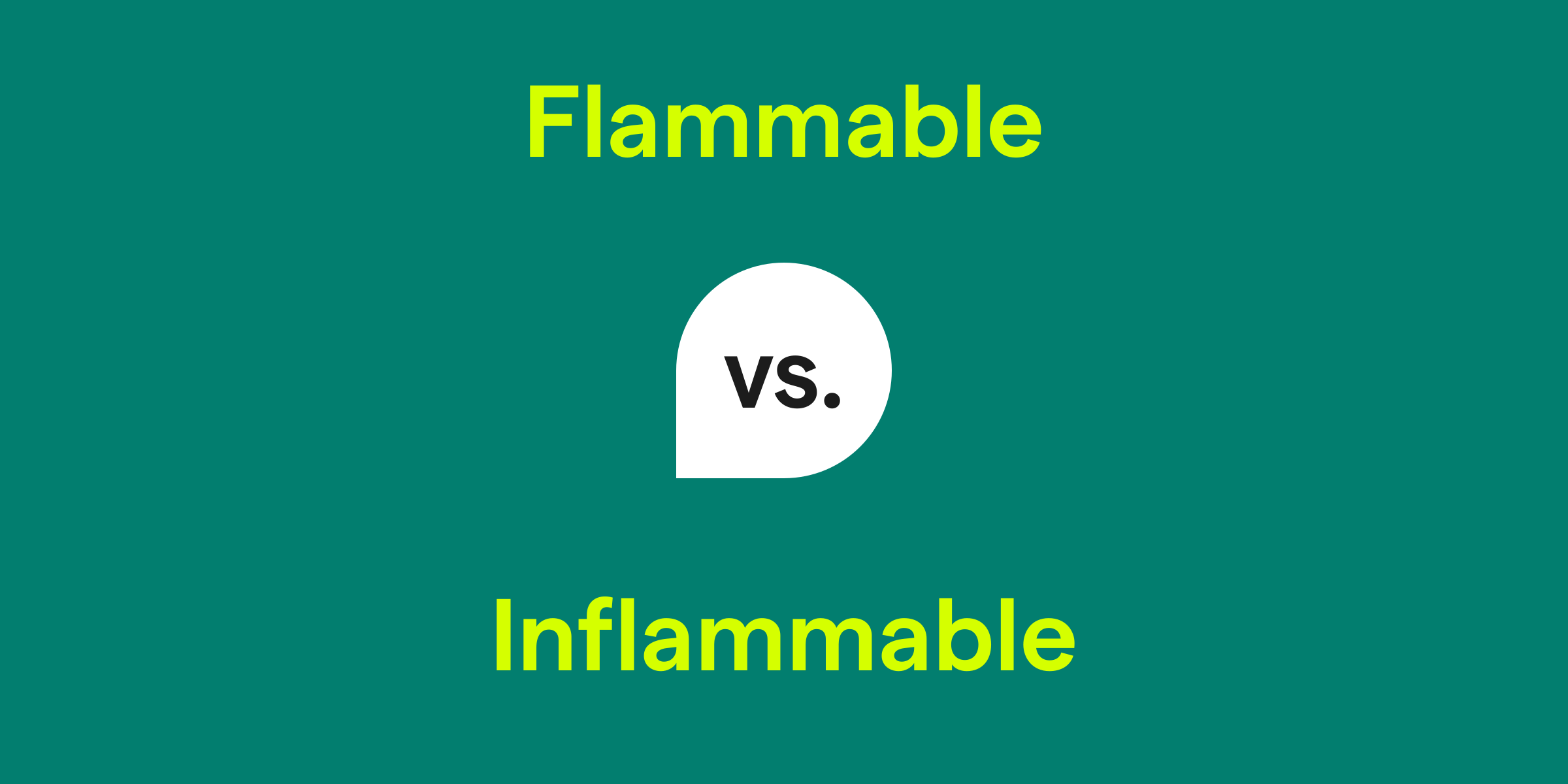Flammable vs. Inflammable: What's the Difference?
Many people assume that flammable and inflammable have opposite meanings, but surprisingly, they both refer to the same property of materials: being easily set on fire. The prefix 'in-' in inflammable is not the Latin negation prefix you see in words like 'invisible' or 'indirect.' Instead, it derives from the word 'inflame.' As a safety precaution, the term flammable is more commonly used today to prevent misunderstanding.

How do you use the word flammable in a sentence?
Use flammable to describe something that can catch fire and burn easily, particularly when talking about materials and substances. Because of its clear and direct meaning, flammable is the preferred term in safety communications, product labels, and guidelines to convey the risk of fire without ambiguity.
Examples of flammable in a sentence
- Always store flammable liquids in a cool, well-ventilated area away from sparks or flames.
- The fire spread quickly due to the large number of flammable materials in the warehouse.
- Gasoline is a highly flammable substance and must be handled with care.
How do you use the word inflammable in a sentence?
Inflammable also indicates that a material can easily catch fire, however, its use is discouraged in safety contexts to prevent confusion with its false antonym, non-inflammable. If you come across the term inflammable, recognize that it has the same meaning as flammable and implies a fire hazard.
Examples of inflammable in a sentence
- Despite the label reading 'inflammable,' the material is not resistant to fire.
- Inflammable liquids require careful handling and proper storage conditions.
- She was surprised to learn that inflammable meant the same as flammable, not the opposite.
Flammable and inflammable definition, parts of speech, and pronunciation
Flammable definition:
Flammable (adjective) - easily set on fire; capable of burning with relative ease.
Flammable parts of speech:
Flammable pronunciation:
Phonetic Pronunciation: /ˈflæməb(ə)l/
Inflammable definition:
Inflammable (adjective) - easily ignited and capable of burning rapidly; synonymous with flammable.
Inflammable parts of speech:
Inflammable pronunciation:
Phonetic Pronunciation: /ɪnˈflæməb(ə)l/
Flammable (adjective) - easily set on fire; capable of burning with relative ease.
Flammable parts of speech:
- Adjective: The flammable chemicals were stored in a secured cabinet.
- Adjective: Due to its flammable nature, the oil must be kept away from heat sources.
Flammable pronunciation:
Phonetic Pronunciation: /ˈflæməb(ə)l/
Inflammable definition:
Inflammable (adjective) - easily ignited and capable of burning rapidly; synonymous with flammable.
Inflammable parts of speech:
- Adjective: The warning sign indicated that the contents of the drum were inflammable.
- Adjective: The building materials used were unfortunately inflammable, leading to a rapid spread of the fire.
Inflammable pronunciation:
Phonetic Pronunciation: /ɪnˈflæməb(ə)l/
Flammable vs. Inflammable in a nutshell
Although they appear to have differing prefixes, flammable and inflammable both describe materials that catch fire easily. The term inflammable might be misleading due to its prefix, while flammable is straightforward and clear, making it the preferred term for safety messages. Both words are adjectives and pronounced with a similar stress pattern, yet today, flammable is more widely accepted to mitigate confusion and promote clarity in communication about fire hazards.
Get AI Writing Assistance Wherever You Type
Make sure your vocabulary is on point and every punctuation mark is in the right place, no matter where you’re working. Grammarly works across more than 1 million websites and apps so you can improve your writing without copying, pasting, or breaking focus.

More Commonly Confused Words
Interest piqued? Pore (not pour) over other commonly confused words to help your writing reach peak (not peek) performance.